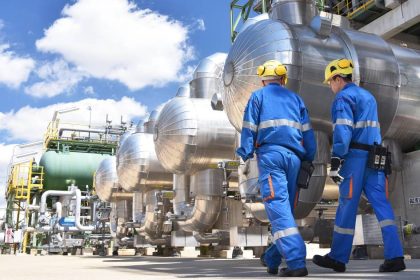Providing work friends and colleagues with the right support post-suicide or death could be crucial in the prevention of mental health problems among workers, experts say.
While suicide remains a significant problem for Australia’s construction industry, great strides have been taken over the last decade to improve awareness and understanding of the importance of mental health.
Many of Australia’s largest building firms and construction companies are now acutely aware of the seriousness surrounding mental health, with programs and protocols in place to assist those suffering.
These preventative measures play a crucial role in safeguarding the mental health of thousands of tradies across the country. However, the industry still loses one construction worker every two days to suicide.
Construction workers are still six times more likely to die from suicide than an accident at work.
Every year, 190 Australians working in the construction industry take their own life, with young construction workers twice as likely to do so than other young Aussie men.
Postvention key to protecting mental health
However, providing better support post-incident to work friends and colleagues is becoming a game changer in preventing the mental health domino effect that often occurs when people lose someone close to them.
Suicide prevention training group MATES in Construction has introduced a post-event training program, Respond, to equip construction workers better to deal with the aftereffects of losing a colleague.
MATES in Construction CEO Nick Thompson told Build-it that losing a loved one, friend or colleague to suicide can often cause a mental health spiral in those close to the victim.
“We know that exposure to these events can cause all sorts of impacts on people from PTSD to ill general and mental health,” he explained to Build-it.
“When you are presented in a workplace context with these situations, the heightened emotions and grief can make it very hard to know what to do or how to respond.”
Nick says having someone who can provide “postvention support” can subsequently become the first line of prevention for mental health care for other colleagues and staff members.
“Because the construction industry is very male-dominated, there’s still this notion not to seek help to deal with the grief or processing, and it can lead to individuals developing their mental health struggles,” he said.
“We find people do a lot better when they have gone through a proper process where the event has been explained to them, and they learn an understanding of what the common responses are and how to address them.”
New program provides real-time support
MATES Respond is the support group’s new training program for construction workers who volunteer to provide peer-to-peer help on-site after a colleague’s death.
These volunteers help communicate the event to the group and act as a point of contact should any worker feel they need mental health support.
They are trained in explaining the situation and communicating and normalising the post-suicide impacts the incident may have.
Regular follow-up intervals occur with staff to check in on their state of mind with those who are referred to further support through MATES or directly to professional services.
The MATES Respond Program focuses on three main elements:
- Connecting with the event by Understanding the event by providing a steady and familiar presence on site who can offer support and guidance.
- Understanding the event by providing workers context for what can be normal reactions to a critical incident and allowing space for these feelings.
- Providing assistance post-event by helping them connect to MATES, which will help fellow workers understand vicarious trauma and provide them with tools for self-care.
MATES in Construction CEO Nick Thompson told Build-it the Respond initiative is unique because it empowers onsite workers to receive real-time help.
“MATES’ peer-to-peer model is transformative for our industry and individual workers and sites because it relies on workers being able to lean on each other,” he said.
“These MATES responders can talk to the group as a whole, explain what has happened and normalise the feelings and stress and then follow up to link them with any support services needed.”
“We are giving these skills to construction workers themselves to guide themselves through these difficult times safely.”
Stats show Respond can make the difference
A recent report from Griffith University showed that, unlike most workplace training, 90 per cent of MATES Respond participants retained the knowledge, skills, and confidence gained after their initial training.
Their review showed that those who participated significantly reduced anxiety and stress levels while showing an uplift in self-efficacy and support to and from others.
There was also a marked increase in confidence in leading discussions on sensitive topics such as grief and loss and in the role of Responder.
This has allowed those construction firms with MATES Responder volunteers to better respond to mental health incidents at work.
Sydney-based civil engineer Tom Clark lost his brother Oliver to suicide in 2021 and knows first-hand the post-event pain those close to a suicide can go through.
He praised the MATES Respond program, telling Build-it how those without guidance can quickly spiral in their struggle to address the emotions of a close suicide.
“Having someone you know pass away through suicide or any other means is always an emotional time, but it can be even more tumultuous when it is someone close who you see nearly every day,” he explained.
“It took years and even cost me my job before I no longer felt lost and could compartmentalise what had happened and knew how to deal with those emotions.”
“If all people had access to this guidance and support on the job site, it could go a long way to helping them deal with the grief and protect their mental health.”






